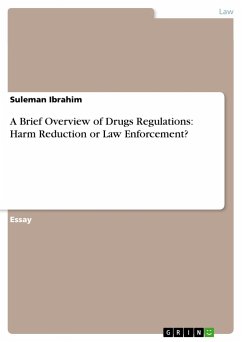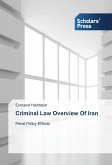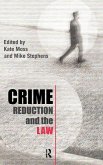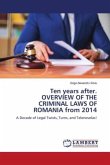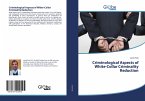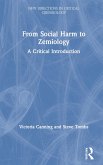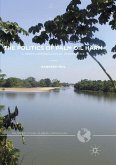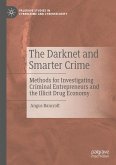Essay from the year 2014 in the subject Law - Criminal process, Criminology, Law Enforcement, grade: Masters Degree, London School of Economics (Social Policy), course: Illegal Drugs and Their Control: Theory, Policy and Practice, language: English, abstract: Harm reduction refers to policies, strategies and practices that aim primarily to reducethe harms associated with the use of psychoactive drugs in people unable or unwillingto stop (Hyshka et al., 2012). On the other hand, Law enforcement broadly refers toany system by which some members of community act in an organized manner toenforce the law by discovering, deterring, punishing persons who violate the rules andvalues governing that society (Beletsky et al., 2013; MacCoun and Reuter, 2001). Indiscussing whether the principles harm reduction or law enforcement should be thefocal point for drug policy, this essay will evaluate evidence across differentgeopolitical contexts from the lens of Lacey's (1998) efficiency/inefficiency theory,which posits that interventions should only be deployed if their positive outcomesoutweigh their negative effects. It will argue that the amalgamation of bothapproaches as suggested by Beyrer (2012: 1) could be productive, but delivery atground level could be challenging (Hyshka et al., 2012). In viewing both approachesas a polarised image of 'Beauty and the Beast', as Wilcox (2005: 255) would say, thisessay will argue that their union in drug policy could yield different slices of realitiesacross geopolitical spaces that could undermine efficiency, because what reflects ondrug regulation is politically determined (Stevens, 2011) as is what counts asefficiency.
Hinweis: Dieser Artikel kann nur an eine deutsche Lieferadresse ausgeliefert werden.
Hinweis: Dieser Artikel kann nur an eine deutsche Lieferadresse ausgeliefert werden.

